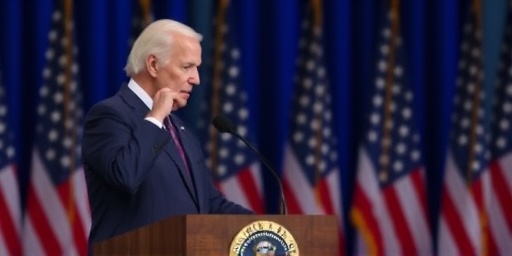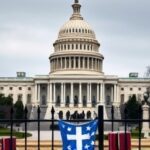In a stark indicator of growing public discontent, President Joe Biden’s approval rating has tumbled to 43% according to the latest NBC News poll, with the soaring Cost of living emerging as the top grievance among Americans. Nearly two-thirds of respondents, or 65%, expressed the view that Biden has not done enough to tackle inflation and everyday expenses that are squeezing household budgets nationwide. This dip in Biden approval comes at a precarious moment for the U.S. economy, as persistent price hikes in groceries, housing, and energy continue to erode consumer confidence despite White House claims of progress.
NBC News Poll Reveals Deepening Divide on Economic Handling
The NBC News poll, conducted from October 10-14 among 1,000 registered voters, paints a troubling picture for the administration. Biden’s overall approval stands at 43%, a four-point decline from the previous survey in September and the lowest in nearly a year. When drilled down to specifics, the numbers are even more revealing: only 38% of Americans approve of how Biden is managing the economy, a core pillar of his presidency that has been battered by inflationary pressures.
Cost of living concerns dominate the feedback. A whopping 65% of those polled believe the president has fallen short in addressing rising prices, up from 58% in the prior poll. This sentiment cuts across party lines, with 92% of Republicans, 68% of independents, and even 42% of Democrats voicing dissatisfaction. “The American people are feeling the pinch every time they go to the grocery store or fill up their gas tank,” said poll director Jenny Beth Martin in an NBC News analysis. “This isn’t just about numbers on a page; it’s about real families struggling to make ends meet.”
Further breakdowns highlight regional disparities. In battleground states like Pennsylvania and Michigan, where manufacturing and energy sectors are vital, approval ratings for Biden’s economic policies hover below 40%. Urban voters, facing acute housing affordability crises, showed the strongest disapproval at 70%. The poll’s margin of error is plus or minus 3.1 percentage points, underscoring the reliability of these trends.
Rising Cost of living Fuels Nationwide Frustration
The surge in cost of living has become the defining economic story of the Biden era, with inflation reaching a 40-year high of 9.1% in June 2022 before cooling to around 3.7% as of September. Yet, for many Americans, the relief feels illusory. Grocery prices have risen 25% since Biden took office, according to the U.S. Department of Agriculture, while rent increases in major cities like New York and San Francisco have exceeded 20% year-over-year.
Energy costs, a flashpoint amid the Russia-Ukraine conflict, remain elevated. Average gasoline prices, though down from summer peaks, are still 15% higher than pre-pandemic levels at about $3.50 per gallon nationwide. “We’re seeing a perfect storm,” explained Dr. Elena Ramirez, an economist at the Brookings Institution. “Supply chain disruptions, geopolitical tensions, and wage stagnation are all conspiring to make the U.S. economy feel more precarious than the GDP growth figures suggest.”
Personal stories amplify the poll’s statistics. In Ohio, a swing state pivotal to the 2024 election, single mother Lisa Thompson shared with NBC News, “I used to budget $200 a week for food; now it’s $300, and I’m still cutting corners. Biden talks about job creation, but what good are jobs if you can’t afford to live?” Similar anecdotes pour in from Texas, where utility bills have spiked due to extreme weather, and California, where wildfires and droughts have driven up insurance premiums by 30%.
The Federal Reserve’s aggressive interest rate hikes—now at 5.25-5.50%—aim to curb inflation but risk tipping the economy into recession. Consumer spending, which drives 70% of U.S. GDP, dipped 0.2% in September, signaling caution among households. Economists warn that if cost of living pressures persist, they could shave another point off GDP growth projected at 2.1% for 2023.
- Grocery Inflation: Up 11.4% year-over-year, per Bureau of Labor Statistics.
- Housing Costs: Median home prices at $394,300, a record high.
- Healthcare Expenses: Out-of-pocket costs rising 7% annually.
These figures underscore why the cost of living has eclipsed other issues like immigration and crime in voter priorities, per the NBC News poll.
White House Pushes Back on Poll Criticism with Policy Wins
Despite the grim poll numbers, the White House is steadfast in defending its economic agenda. Press Secretary Karine Jean-Pierre, in a briefing following the poll’s release, emphasized, “President Biden’s policies are working to lower costs for working families. We’ve created over 13 million jobs since taking office, and inflation is trending downward thanks to targeted investments like the Inflation Reduction Act.”
The administration points to tangible achievements: insulin prices capped at $35 per month for Medicare recipients, a 21% drop in wholesale energy costs since mid-2022, and billions in infrastructure funding aimed at boosting supply chains. “We’re not there yet, but the trajectory is positive,” said Council of Economic Advisers Chair Jared Bernstein in an op-ed for The Washington Post. “The NBC News poll reflects a snapshot, not the full story of recovery.”
Critics, however, argue these measures fall short. Republican leaders like House Speaker Kevin McCarthy have seized on the Biden approval slump, tweeting, “Americans are paying the price for failed Democrat policies. Time for accountability.” The White House counters by blaming inherited challenges from the COVID-19 pandemic and global events, noting that unemployment remains low at 3.8%.
Internally, aides acknowledge the political toll. A senior official speaking anonymously to Politico revealed that Biden has ordered a review of messaging strategies to better highlight cost-saving initiatives, such as student debt relief affecting 4.3 million borrowers and expanded child tax credits that lifted 3 million children out of poverty last year.
Voter Reactions Highlight Broader U.S. Economy Anxieties
The NBC News poll’s findings ripple into wider anxieties about the U.S. economy. Only 42% of voters feel financially better off than four years ago, a sharp contrast to the optimism during the Trump administration’s early days. Independents, who make up 40% of the electorate, are particularly bearish: 72% disapprove of Biden’s economic stewardship, potentially jeopardizing Democratic chances in 2024 midterms and beyond.
Demographic shifts are evident. Younger voters under 30, once a Biden stronghold, now split evenly on his performance, citing student loans and entry-level job scarcity amid a 4.1% youth unemployment rate. Seniors, benefiting from Social Security adjustments, offer slightly warmer approval at 48%, but even they worry about Medicare premiums rising 5.6% in 2024.
Focus groups conducted alongside the poll reveal raw frustration. In Atlanta, a group of suburban women decried childcare costs averaging $10,000 annually per child, unchanged despite federal subsidies. “The White House says build back better, but for us, it’s just more expensive,” one participant noted. In contrast, union workers in Detroit praised auto industry investments from the CHIPS Act, which promises 1,000 new jobs at a Ford plant—yet even they fret over 7% inflation eroding wage gains.
International comparisons add context: While U.S. inflation outpaces the Eurozone’s 2.4%, recovery from the pandemic has been swifter here, with GDP surpassing pre-COVID levels by 5%. Still, perceptions lag reality, as psychologist Dr. Marcus Hale explains: “Economic optimism is psychological; when wallets feel lighter, trust in leaders erodes quickly.”
Path Forward: Economic Challenges Shape 2024 Election Outlook
As the poll’s shadow looms, the road ahead for Biden and the U.S. economy is fraught with hurdles and opportunities. The Federal Open Market Committee’s next meeting in November could signal rate cuts if inflation dips below 3%, potentially easing mortgage rates from their 7.8% peak and stimulating housing. However, risks abound: a government shutdown over budget disputes, now more likely with a divided Congress, could exacerbate cost of living woes by disrupting federal services.
Looking to 2024, the NBC News poll suggests Biden approval must rebound to competitive levels. Political analysts like those at FiveThirtyEight predict that if cost of living remains the dominant issue, Republican challengers could gain traction in swing states. Yet, Democratic strategists eye silver linings: upcoming wage hikes from minimum wage pushes in 20 states and green energy jobs projected to add 1 million positions by 2030.
The White House plans a “kitchen table tour” starting in swing districts, focusing on personal stories of economic relief. Biden himself addressed the nation in a recent speech, stating, “I know times are tough, but we’re fighting for you—lowering prices, creating jobs, and building an economy that works for everyone.” Whether this resonates remains to be seen, but with holiday spending season approaching and Black Friday sales under pressure from 4% retail inflation, the stakes for the U.S. economy and Biden’s legacy could not be higher.
In the end, bridging the gap between policy wins and public perception will define the administration’s final years. As Americans brace for winter bills and tax season, the cost of living debate shows no signs of cooling, setting the stage for a pivotal electoral reckoning.








